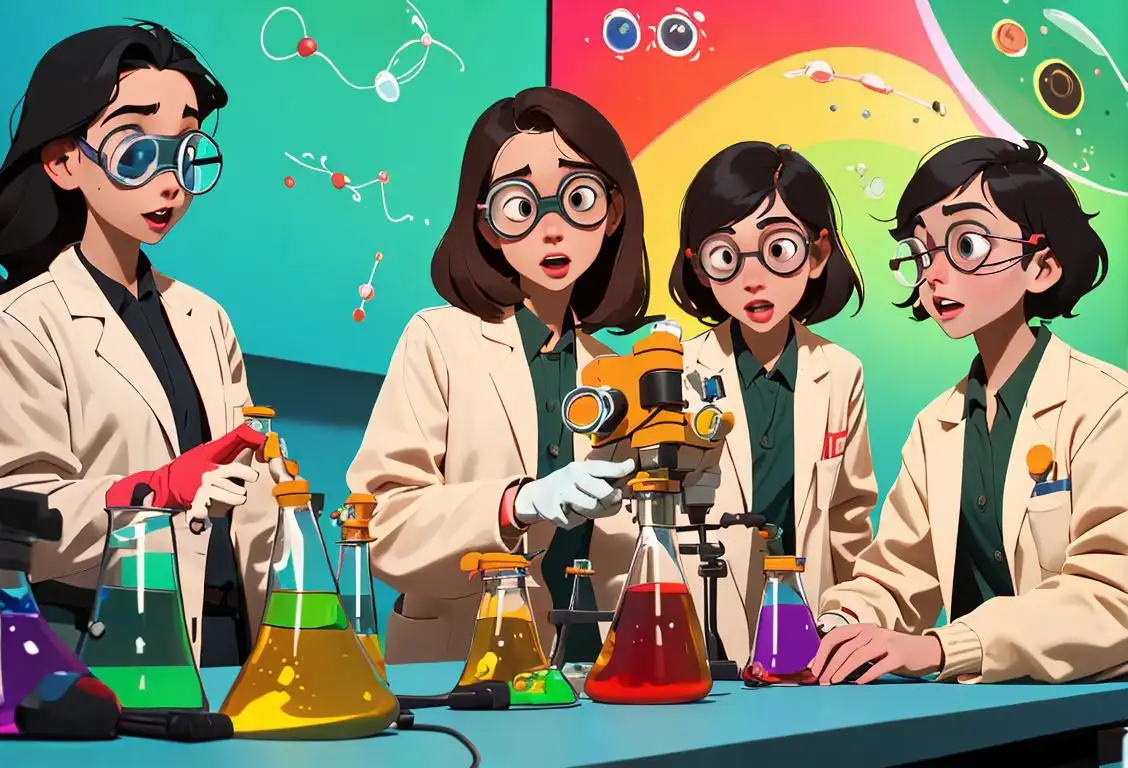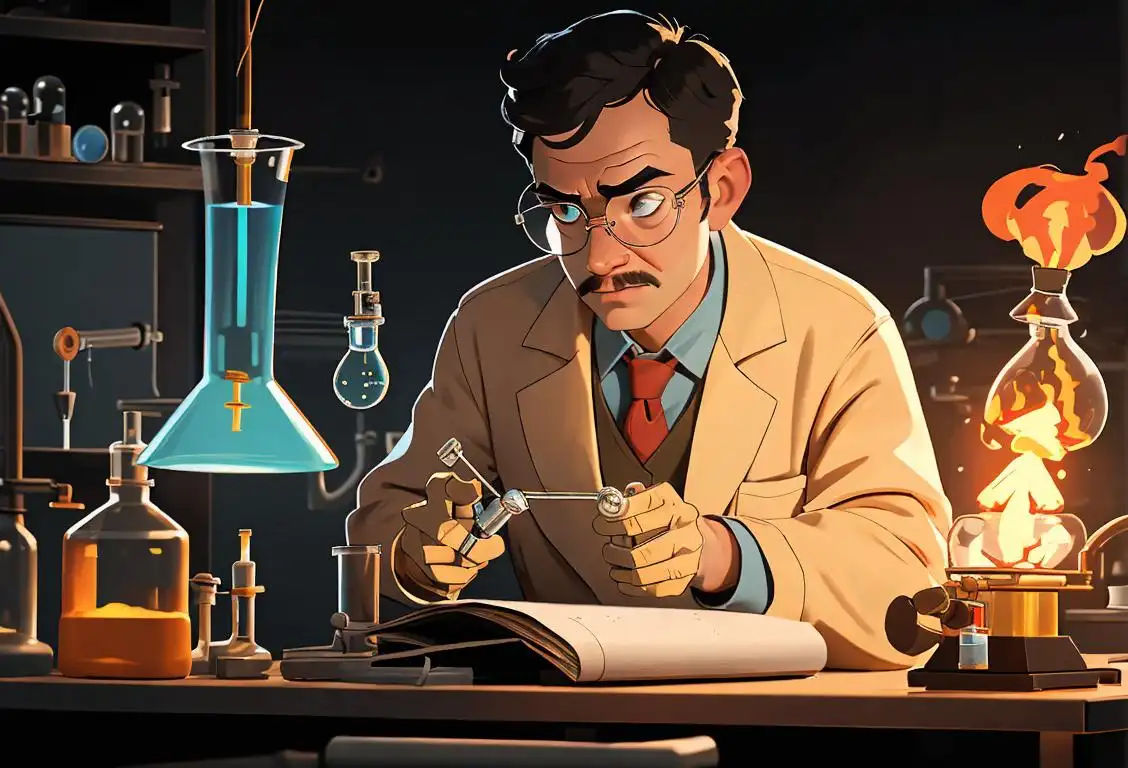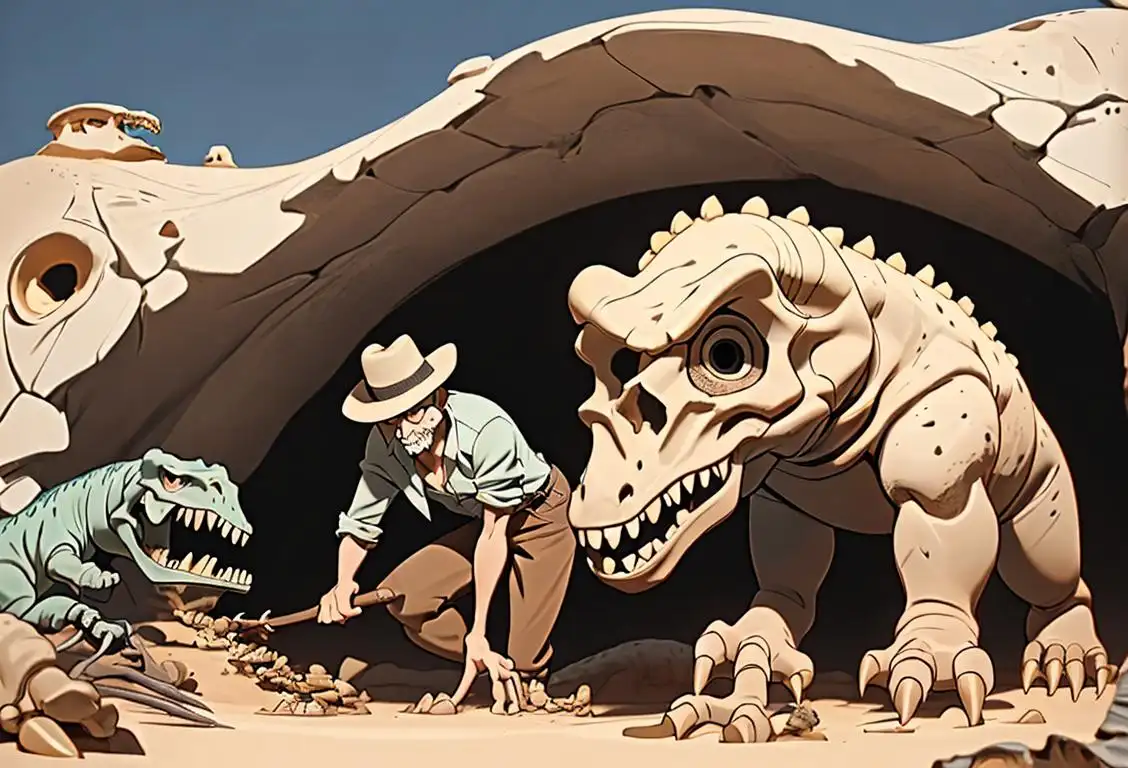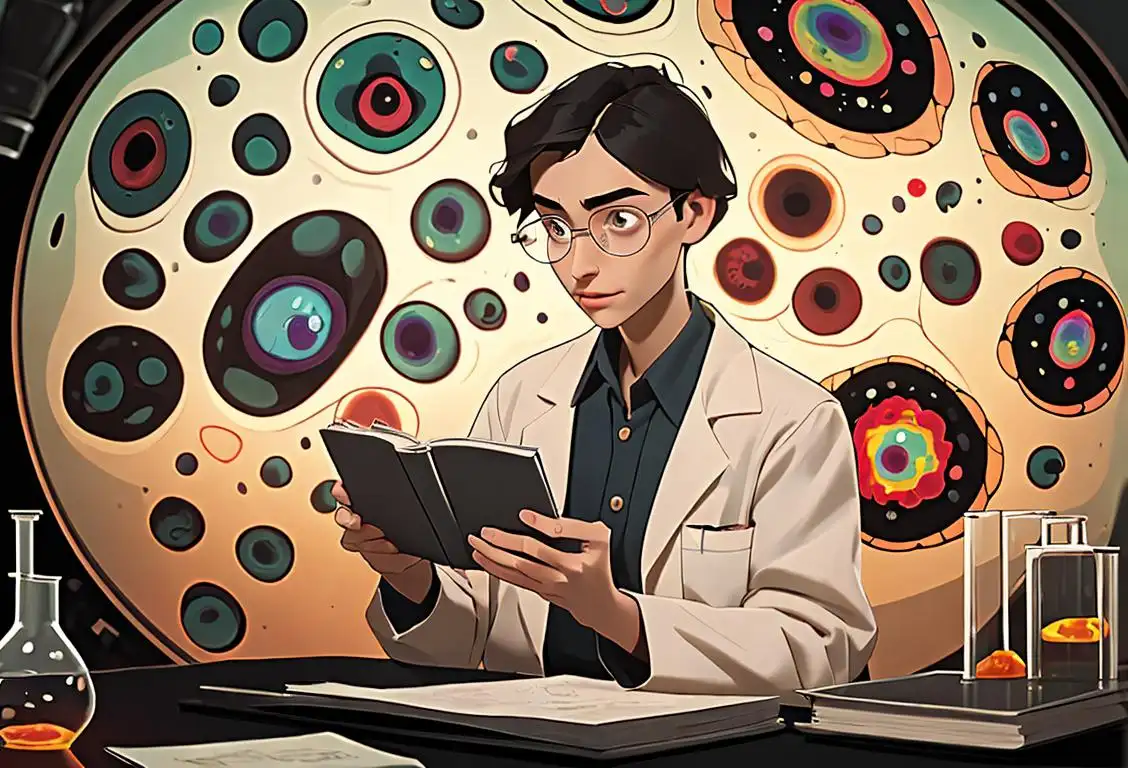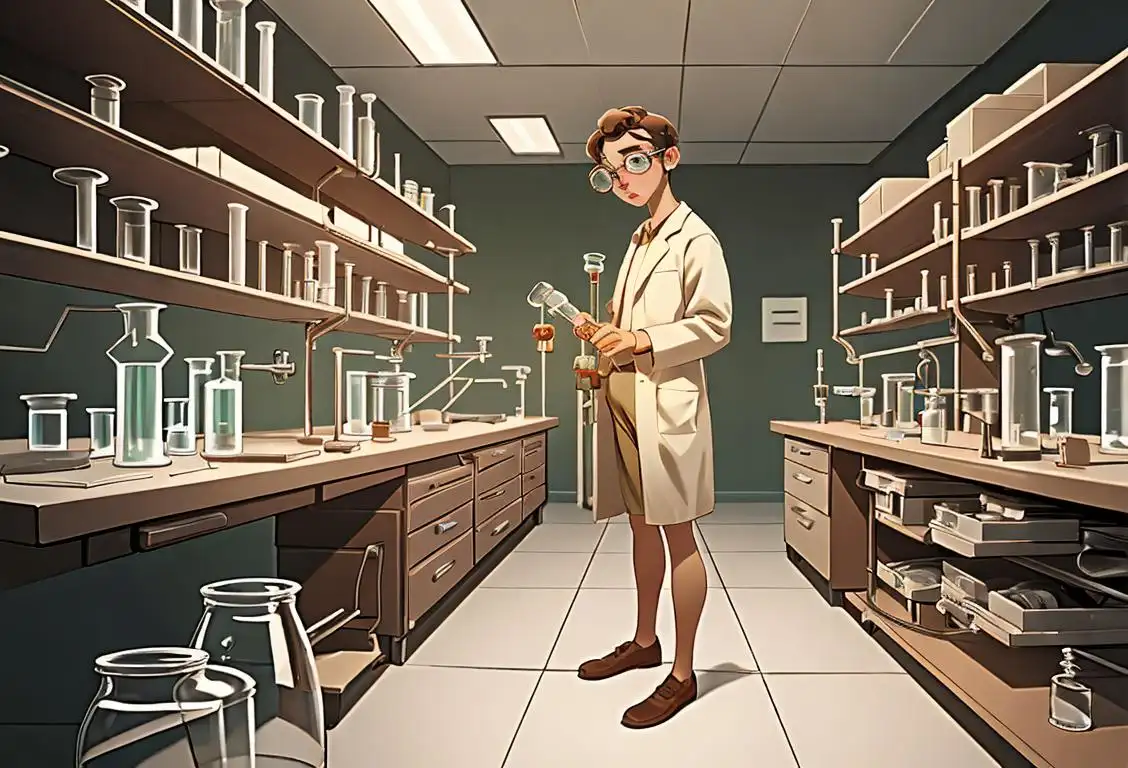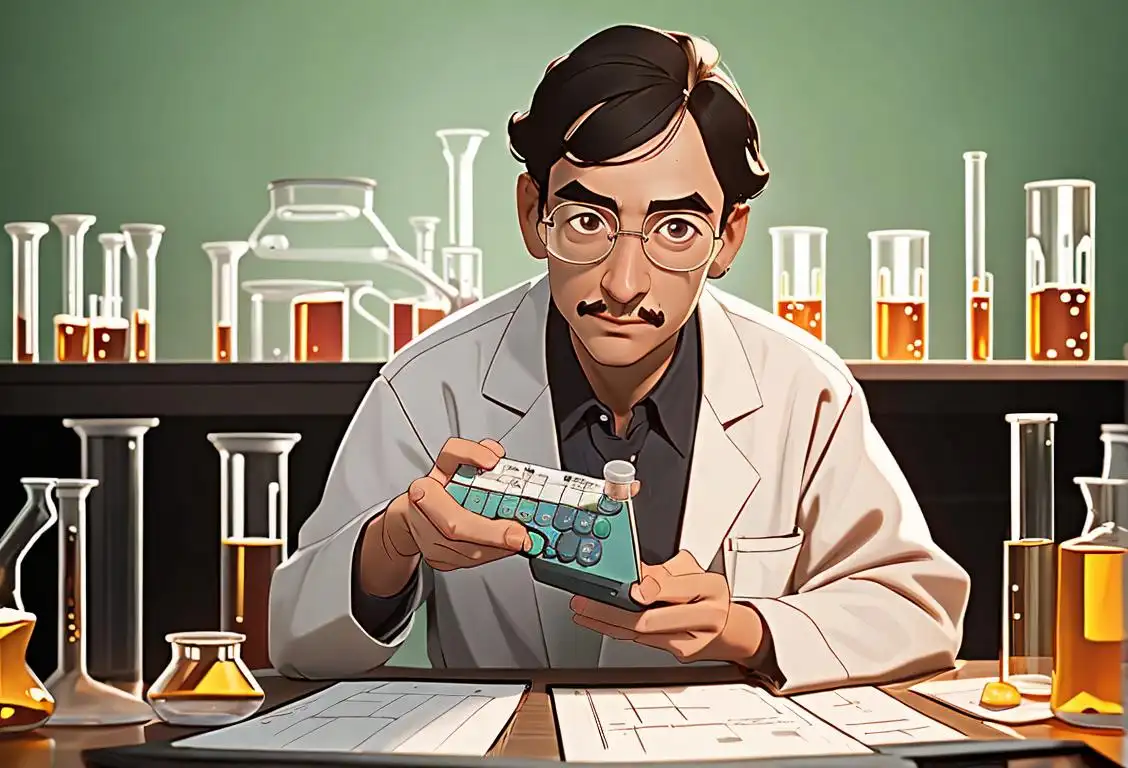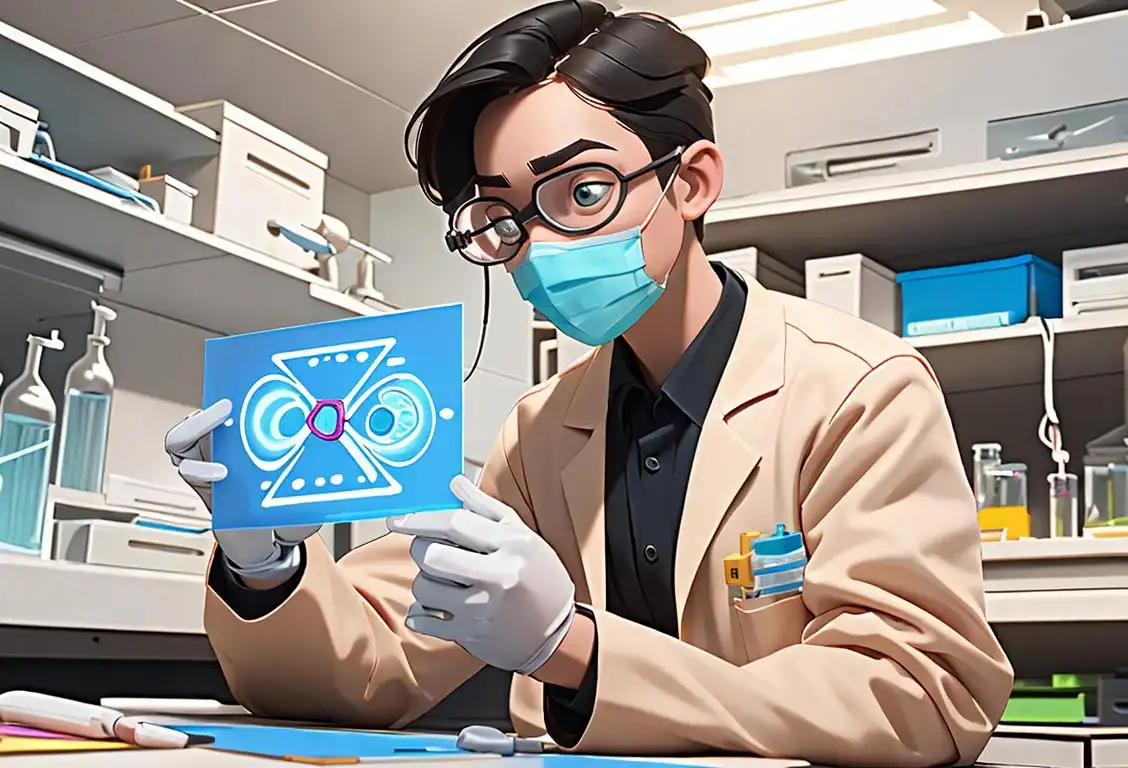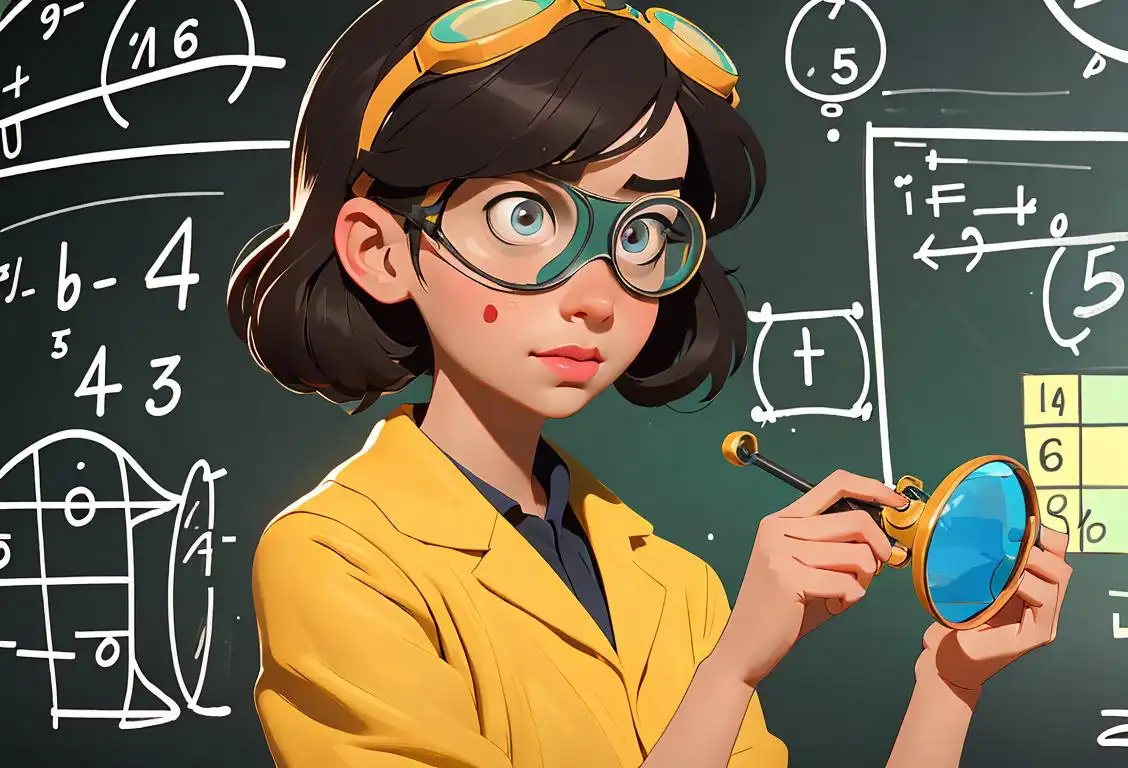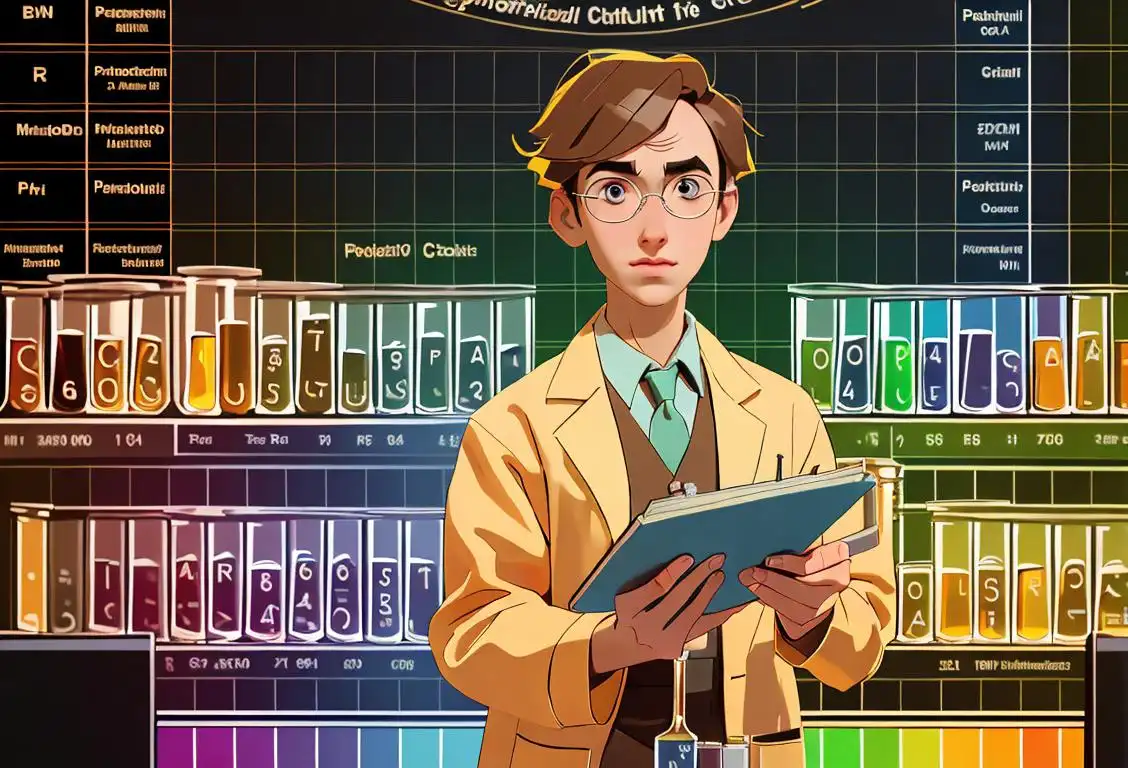National Chemistry Day
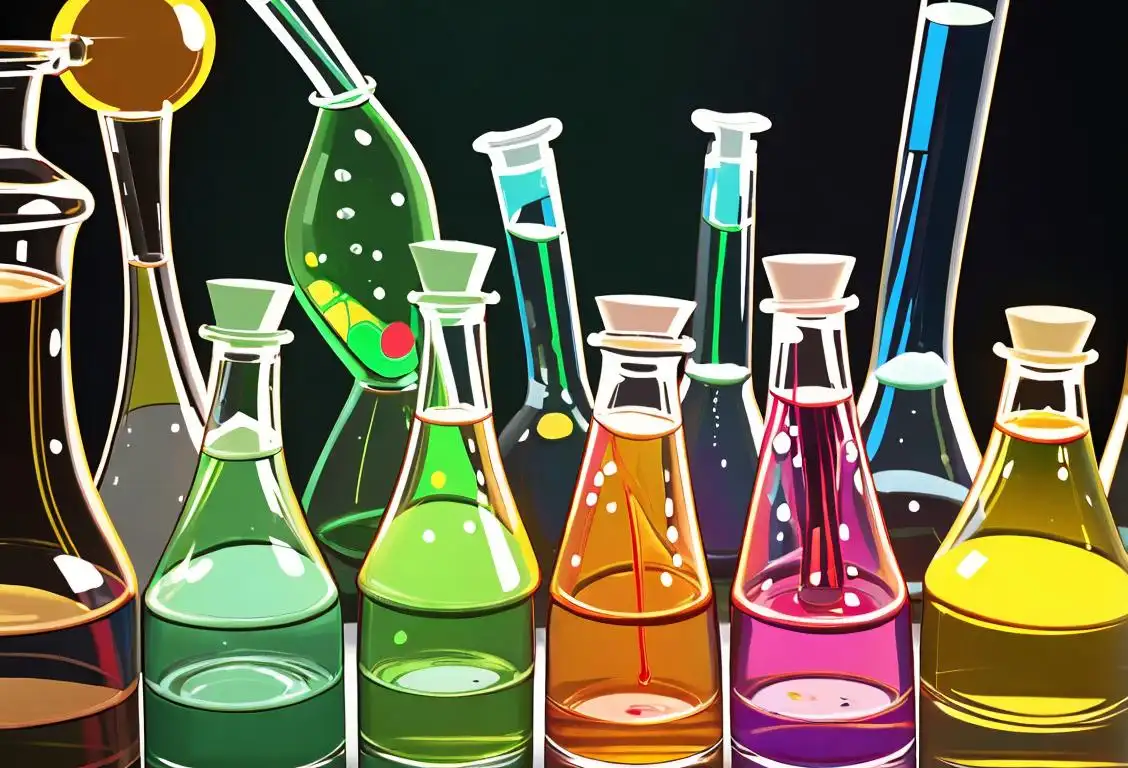
Welcome, chemistry enthusiasts! Today, we're diving into the wonderful world of National Chemistry Day. Prepare to be amazed and maybe even do a few experiments with some colorful concoctions. Let's get started!
When is Chemistry Day?
It's national chemistry day on the 3rd November.
The Origins of National Chemistry Day
Our journey begins on November 3rd, 2016, the day when National Chemistry Day caught the attention of the internet. With a whopping 4 online mentions, it's safe to say that chemists and science lovers were buzzing with excitement!
So, what inspired this splendid celebration? It's all about recognizing and appreciating the diverse wonders of chemistry. From unraveling the mysteries of the elements to finding solutions for global challenges, chemistry plays a vital role in our everyday lives.
Chemistry Fun Facts
Did you know that chemists have their own sense of humor? It's true! Here's a fun fact for you: If you can't helium, and you can't curium, you'll probably have to barium. Get it? Ah, the joys of chemistry puns!
Now, let's dive deeper into the many exciting ways to celebrate National Chemistry Day.
Experiment with Science
Grab your lab coats and safety goggles because it's time to get hands-on with some experiments. Mix up some colorful potions, create volcanic eruptions using baking soda and vinegar, or try your hand at growing crystals. Just remember to follow all safety guidelines and have fun exploring the wonders of reactions, elements, and compounds.
Attend Chemistry Events
Check if there are any local science museums, universities, or chemistry organizations hosting special events for National Chemistry Day. From interactive exhibitions to science talks, these events are a fantastic opportunity to learn from experts in the field and witness mind-blowing demonstrations.
Spread the Love on Social Media
Don't forget to show your love for chemistry on social media. Snap some colorful photos, share your favorite chemical compounds, and use the hashtag #NationalChemistryDay to join the virtual celebration. Who knows, you might inspire someone else's passion for science!
Host a Chemistry Party
Gather your fellow chemistry enthusiasts, and throw a chemistry-themed party! Decorate with periodic table banners, serve elemental-inspired snacks, and challenge your friends to chemistry trivia. It'll be a blast!
History behind the term 'Chemistry'
1661
Emergence of the term 'chemistry'
The term 'chemistry' originated in 1661 from the French word 'chimie', which was derived from the Arabic word 'al-kīmiyā'. Al-kīmiyā comes from the Greek word 'khēmeia', a term originally used to describe the production of precious metals. The Greek word is suggested to have Egyptian origins, referring to the black fertile soil along the Nile River, known as 'khēmeia'. Thus, the term 'chemistry' initially had connections to both metallurgy and philosophy.
1663
Robert Boyle's influence
In 1663, Robert Boyle, an English chemist, refined and focused the meaning of 'chemistry.' He introduced the idea that chemistry was a distinct scientific discipline, separate from alchemy. Boyle emphasized the experimental aspects of chemical research and laid the groundwork for the quantitative studies that would later become crucial to the field. His contributions to chemistry helped establish it as a rigorous scientific discipline.
1669
Georg Ernst Stahl and phlogiston theory
In 1669, German chemist Georg Ernst Stahl proposed the phlogiston theory in his book 'Zymotechnia fundamentalis.' According to this theory, phlogiston was a fire-like element that was released during combustion. Stahl used the term 'chemistry' to describe the study of phlogiston and its transformations. Although the phlogiston theory was eventually disproven, the term 'chemistry' became widely associated with the study of chemical reactions and transformations.
1789
Antoine Lavoisier and the modern definition
The modern definition of chemistry began to take shape in 1789 with the work of Antoine Lavoisier, a French chemist. Lavoisier revolutionized the field by disproving the phlogiston theory and introducing the concept of chemical elements. He is known as the 'Father of Modern Chemistry' for his meticulous experiments, precise measurements, and discovery of the conservation of mass during chemical reactions. Lavoisier's systematic approach and his use of the term 'chemistry' to describe the study of elements and their interactions laid the foundation for modern chemistry as we know it today.
Did you know?
Did you know that chemists have their own sense of humor? It's true! Here's a fun fact for you: If you can't helium, and you can't curium, you'll probably have to barium.Tagged
fun education scienceFirst identified
3rd November 2016Most mentioned on
3rd November 2016Total mentions
4Other days
Youth Science Day
Bunsen Burner Day
Fossil Day
Virus Appreciation Day
Lab Day
Mole Day
Dna Day
Stem Day
Periodic Table Day
Metric Day
